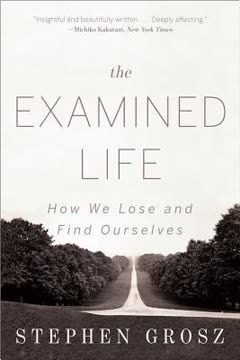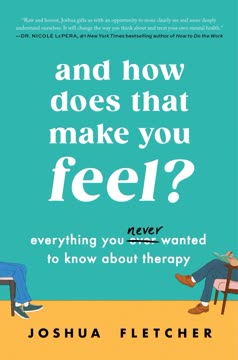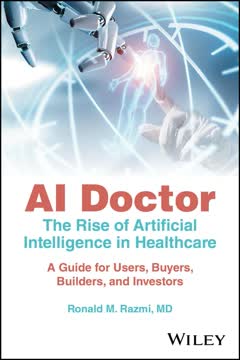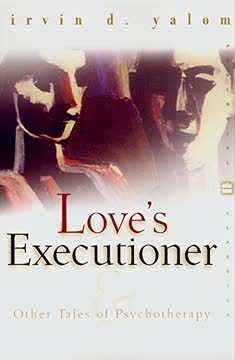Key Takeaways
1. Unspoken Stories Shape Us: Our deepest wounds often lack words.
Experience has taught me that our childhoods leave in us stories like this – stories we never found a way to voice, because no one helped us to find the words.
The Power of the Unsaid. Many of our behaviors stem from childhood experiences we haven't fully processed or articulated. These unspoken stories manifest as dreams, symptoms, and actions we don't understand. Psychoanalysis aims to bring these hidden narratives to light.
Peter's Case. The story of Peter, who faked his own death, illustrates this point. His violent behavior and need to shock stemmed from early childhood trauma he couldn't verbalize. Only through analysis did he uncover the violence and neglect he experienced as an infant.
Finding the Language. The key to healing lies in finding the language to express these unspoken stories. When we can articulate our sorrows, we gain control over them, rather than being controlled by them. Therapy provides a space to develop this language and rewrite our internal narratives.
2. Laughter as Defense: Humor can mask pain, hindering true understanding.
Your jokes defuse your anger, but they defuse it to the point that I just accept my parents’ behavior. I stop thinking about it.
Humor as a Shield. Laughter can be a powerful defense mechanism, deflecting anger and pain. While it provides temporary relief, it can also prevent us from confronting underlying issues and achieving deeper understanding.
Lily's Comic Bits. Lily, who joked about her difficult relationship with her parents, exemplifies this. Her humor served as a coping mechanism, but it also prevented her from fully processing her hurt and anger. The jokes defused her anger to the point that she just accepted her parents' behavior and stopped thinking about it.
The Violence of Punchlines. The word "punchline" itself hints at the aggression inherent in humor. While jokes can be a way of getting revenge, they can also short-circuit the process of genuine emotional processing and resolution.
3. Praise Can Hinder: Empty praise is indifference; presence builds confidence.
If we do it to avoid thinking about our child and her world, and about what our child feels, then praise, just like criticism, is ultimately expressing our indifference.
The Pitfalls of Praise. Overly praising children, especially for innate qualities like intelligence, can be detrimental. It can lead to anxiety, fear of failure, and a reluctance to take risks. Children praised for being "clever" may become more concerned with maintaining that image than with learning and growing.
The Value of Presence. True confidence comes not from empty praise, but from genuine attentiveness. Being present with a child, observing their activities, and listening to their thoughts communicates that they are valued and worth thinking about.
Charlotte Stiglitz's Wisdom. Charlotte Stiglitz, an experienced educator, emphasized the importance of praising effort and resilience, rather than innate abilities. She also highlighted the power of simple gratitude and acknowledgment of a child's patience.
4. Pain as a Gift: Emotional pain, though unpleasant, guides us.
If I had one gift which I could give to people with leprosy, it would be the gift of pain.
The Function of Pain. Emotional pain, like physical pain, serves a vital function. It alerts us to problems, guides us away from danger, and motivates us to seek help. Suppressing or ignoring our pain can lead to further damage.
Matt's Indifference. Matt, who had a history of trauma and self-destructive behavior, seemed strangely indifferent to his own situation. He lacked the ability to make others worry about him, and he didn't register his own emotions.
Psychological Leprosy. Matt suffered from a kind of "psychological leprosy," unable to feel his emotional pain. This made him vulnerable to further self-harm and prevented him from seeking meaningful connection and support.
5. Safe Houses of the Mind: Fantasies offer refuge, revealing deeper needs.
It’s my safe house.
Escapism and Safety. Fantasies can serve as "safe houses" in our minds, offering refuge from anxiety, anger, and the perceived intolerability of reality. These mental constructs often reveal our deepest needs and desires.
The House in France. A patient's obsession with a house in France, which he incessantly redecorated in his mind, illustrates this point. The house represented a place of peace, safety, and control, a stark contrast to the chaos and stress of his daily life.
Magic Doors. The patient's fantasy also included a "magic door" that could transport him to his safe house at any moment. This reflects a longing for escape from overwhelming situations and a desire for control over his environment.
6. Lies as Connection: Deception can be a twisted attempt at intimacy.
Philip’s lying was not an attack upon intimacy – though it sometimes had that effect. It was his way of keeping the closeness he had known, his way of holding on to his mother.
Lies as a Mess. Lies are often seen as a way to avoid intimacy, but they can also be a distorted attempt to create connection. By telling lies and hoping to be caught, individuals may be seeking a form of attention or validation.
Philip's Bedwetting. Philip, a pathological liar, had a history of bedwetting as a child. His mother's silence about this created a private conversation between them. His lies were a way of recreating this intimacy, hoping to elicit a similar response from others.
The Secret World. Philip's lying was not an attack upon intimacy, though it sometimes had that effect. It was his way of keeping the closeness he had known, his way of holding on to his mother.
7. The Trap of the Couple: Societal pressure obscures individual needs.
A lot of people, especially psychoanalysts, assume that happiness can only be found in a couple – but not all of us are made for relationships.
The Myth of the Couple. Society often pressures individuals to be in relationships, equating happiness with romantic partnership. However, this can obscure the fact that some people are genuinely happier and healthier on their own.
Michael's Story. Michael, who called off his wedding and struggled with intimacy, exemplifies this. He realized that he felt suffocated in relationships and that his well-being depended on maintaining a certain distance from others.
Acceptance and Self-Knowledge. The key is to understand and accept one's own needs and preferences, rather than conforming to societal expectations. For Michael, this meant embracing his solitude and finding ways to connect with others on his own terms.
8. Ignorance as a Choice: Sometimes, we actively avoid the truth.
She wasn’t just passive; she seemed to work at keeping herself ignorant.
The Comfort of Denial. Facing difficult truths can be painful, so we sometimes choose to remain ignorant, even when evidence is staring us in the face. This can be a way of protecting ourselves from overwhelming emotions or maintaining a sense of control.
Francesca's Blindness. Francesca, who seemed oblivious to her husband's infidelity, illustrates this point. Despite numerous red flags, she actively avoided seeking out the truth, preferring to remain in a state of blissful ignorance.
Repeating the Past. Francesca's behavior may have been rooted in her own childhood experiences. Her mother had also chosen to ignore her father's affair, creating a pattern of denial that Francesca unconsciously repeated in her own marriage.
9. Lovesickness vs. Love: Obsession can be a barrier to genuine connection.
People who are lovesick put off testing their fantasies against reality.
The Illusion of Love. Lovesickness, characterized by intense longing and obsessive thoughts, is often mistaken for genuine love. However, it can be a form of escapism, preventing us from forming real connections with others.
Helen's Affair. Helen, who had a long-term affair with a married man, exemplifies this. She was so consumed by her fantasies of him that she was unable to see the reality of their relationship or to form meaningful connections with others.
Facing Reality. The key to overcoming lovesickness is to confront reality, however painful it may be. This involves letting go of idealized fantasies and embracing the possibility of genuine connection, even if it means facing loneliness and vulnerability.
10. The Bigger the Front: Outward displays often conceal inner turmoil.
The bigger the front, the bigger the back.
The Mask of Perfection. People often present a carefully constructed image to the world, concealing their true feelings and struggles. The more elaborate the facade, the more likely it is that there is something hidden beneath.
Abby's Father. Abby's father, who disowned her for marrying outside his religion, exemplifies this. His outward display of religious conviction concealed his own secret affair with a Catholic woman.
Splitting. This behavior is a defense mechanism called "splitting," where we project unwanted aspects of ourselves onto others. By condemning those qualities in others, we avoid acknowledging them in ourselves.
11. The Burden of the Ideal: Unrealistic expectations can poison relationships.
I didn’t know it would make me feel so lonely.
The Myth of Perfection. We often enter relationships with unrealistic expectations, hoping that they will fulfill all of our needs and solve all of our problems. When these expectations are not met, we can feel disappointed, resentful, and alone.
Jessica's Anger. Jessica, who had always imagined herself as a perfect mother, became angry and resentful when faced with the realities of parenthood. She blamed her husband for not meeting her expectations and used him as a scapegoat for her own feelings of inadequacy.
The Importance of Acceptance. The key to healthy relationships is to accept our partners for who they are, rather than trying to mold them into our ideal. This involves letting go of unrealistic expectations and embracing the imperfections that make us human.
12. The Haunting of Loss: Unresolved grief distorts our present.
I still imagine him being there when Dan and I get married, when we have children.
The Power of the Past. Unresolved grief can distort our perception of the present, preventing us from fully engaging with our lives. We may become stuck in the past, unable to let go of what we have lost.
Jennifer's Calm. Jennifer, who seemed strangely calm after her father's death, exemplifies this. She was so focused on the future she had imagined with him that she was unable to grieve his loss or to fully engage with her present relationship.
Mourning the Future. The key to healing is to mourn not only the past, but also the future that will never be. This involves acknowledging the pain of loss and allowing ourselves to grieve for what might have been.
Last updated:
FAQ
1. What is "The Examined Life: How We Lose and Find Ourselves" by Stephen Grosz about?
- Collection of Case Studies: The book is a series of real-life stories from Stephen Grosz’s 25 years as a psychoanalyst, exploring the inner workings of the human mind.
- Focus on Change and Loss: It examines how people become trapped by their own thoughts, behaviors, and histories, and how change is deeply connected to experiences of loss.
- Everyday Psychoanalysis: Grosz uses accessible language and relatable examples to show how psychoanalytic insights apply to everyday life, not just the therapy room.
- Themes of Communication: The book emphasizes the importance of telling our stories, being listened to, and understanding the “walls” that both separate and connect us.
2. Why should I read "The Examined Life" by Stephen Grosz?
- Insight into Human Nature: The book offers profound insights into why we behave the way we do, making it valuable for anyone interested in psychology or self-understanding.
- Relatable and Compassionate: Grosz’s stories are compassionate, often moving, and written in a way that makes complex psychological ideas accessible to all readers.
- Practical Wisdom: Readers gain practical advice on dealing with change, loss, relationships, and emotional pain, applicable to their own lives.
- Literary and Engaging: The writing is praised for its clarity, elegance, and narrative drive, making it as enjoyable as it is enlightening.
3. What are the key takeaways from "The Examined Life" by Stephen Grosz?
- Change Requires Loss: True change is always accompanied by some form of loss, and understanding this is crucial for personal growth.
- The Power of Storytelling: When we cannot tell our stories, our stories “tell us”—manifesting in dreams, symptoms, or self-defeating behaviors.
- Importance of Being Present: Attentiveness and presence, rather than praise or criticism, are what truly build confidence and connection.
- Facing Difficult Emotions: Avoiding pain, anger, or sadness often leads to greater suffering; acknowledging and working through these feelings is essential for healing.
4. How does Stephen Grosz use psychoanalysis in "The Examined Life"?
- Real-Life Case Studies: Grosz draws on thousands of hours with patients, using their stories to illustrate psychoanalytic concepts in action.
- Focus on Listening: He highlights the importance of listening not just to words, but to silences, gaps, and emotional undercurrents.
- Everyday Relevance: The book shows how psychoanalytic thinking can help us understand everyday problems—relationships, parenting, grief, and self-sabotage.
- No Jargon, Just Stories: Grosz avoids technical language, making psychoanalysis approachable and relevant to a general audience.
5. What are the main themes explored in "The Examined Life" by Stephen Grosz?
- Change and Resistance: The struggle to change, and the unconscious forces that keep us stuck, are central to many stories.
- Loss and Mourning: The book explores how we deal with loss—of people, dreams, or parts of ourselves—and the myth of “closure.”
- Communication and Secrets: The importance of telling the truth, keeping or breaking secrets, and the impact of what remains unsaid.
- Relationships and Intimacy: How we connect, disconnect, and sometimes sabotage our closest relationships, including love, envy, and hate.
6. What are some of the most memorable case studies or stories in "The Examined Life"?
- Peter’s Fake Suicide: A patient fakes his own death, revealing how untold stories can possess and control us.
- Lily’s Laughter: A woman uses humor to numb herself from parental neglect, showing how jokes can both protect and limit us.
- The Gift of Pain: The story of Matt, who cannot feel emotional pain, illustrates the dangers of emotional numbness.
- The Safe House: A man’s obsession with an imaginary house reveals how childhood trauma shapes adult coping mechanisms.
7. How does "The Examined Life" by Stephen Grosz address the concept of change and why is it so difficult?
- Change Means Loss: Grosz argues that all change involves losing something—an identity, a relationship, or a way of being—which can be deeply unsettling.
- Resistance to Change: People often cling to familiar pain or dysfunction because the unknown is more frightening than the known.
- Stories That Trap Us: When we can’t articulate our stories, we act them out, making change even harder.
- Small Steps Matter: The book suggests that even small shifts in awareness or behavior can be significant, and that psychoanalysis helps by making the unconscious conscious.
8. What does "The Examined Life" say about the role of storytelling in understanding ourselves?
- Stories Give Meaning: Grosz believes that we make sense of our lives through the stories we tell about ourselves and our experiences.
- When Stories Can’t Be Told: If we can’t find words for our pain, it emerges in symptoms, dreams, or destructive actions.
- The Analyst as Listener: The psychoanalyst’s role is to help patients find and voice their stories, enabling healing and change.
- “Our Story Tells Us”: The book’s central insight is that unspoken stories can control our lives until we find a way to tell them.
9. How does Stephen Grosz in "The Examined Life" explain the impact of praise, criticism, and being present—especially in parenting?
- Praise Can Backfire: Research and case studies show that praising children for being “clever” can undermine confidence and motivation.
- Being Present Matters Most: Attentiveness and genuine engagement with a child’s experience are more valuable than praise or criticism.
- Praise vs. Thankfulness: Grosz suggests thanking children for effort or patience, rather than praising them for ordinary achievements.
- Building Confidence: True confidence comes from feeling seen and thought about, not from empty praise.
10. What unique psychological concepts or terms are introduced or explained in "The Examined Life"?
- Splitting: The defense mechanism of projecting unwanted feelings onto others, as in “the bigger the front, the bigger the back.”
- Paranoia as Defense: Paranoid fantasies can protect us from the more painful feeling of being forgotten or unloved.
- Negative Therapeutic Reaction: The tendency to resist help or improvement, even when it’s wanted, due to unconscious fears.
- Mourning the Future: The idea that we must grieve not just the past, but also the future we imagined but may never have.
11. What are the best quotes from "The Examined Life" by Stephen Grosz and what do they mean?
- “When we cannot find a way of telling our story, our story tells us—we dream these stories, we develop symptoms, or we find ourselves acting in ways we don’t understand.”
- This highlights the importance of self-understanding and the dangers of unspoken pain.
- “Change and loss are deeply connected—there cannot be change without loss.”
- Grosz emphasizes that growth always involves letting go of something.
- “Being present builds a child’s confidence because it lets the child know that she is worth thinking about.”
- The value of genuine attention over superficial praise.
- “Closure is just as delusive—it is the false hope that we can deaden our living grief.”
- Challenges the popular idea that grief can be “finished” or “closed.”
12. How can readers apply the lessons from "The Examined Life" by Stephen Grosz to their own lives?
- Embrace Self-Reflection: Take time to examine your own stories, feelings, and patterns, especially those that are difficult to face.
- Accept Loss as Part of Change: Recognize that growth often requires letting go, and that mourning is a natural part of life.
- Value Presence Over Praise: In relationships, especially with children, focus on being attentive and genuinely engaged.
- Seek Understanding, Not Perfection: Healing and change come from understanding ourselves, not from achieving closure or erasing pain.
Review Summary
The Examined Life receives mixed reviews. Many praise Grosz's storytelling and insights into human behavior, finding the case studies compelling and relatable. Some appreciate the accessible approach to psychoanalysis, while others criticize the lack of theoretical context and depth. Readers often connect personally with the stories, finding them thought-provoking and emotionally resonant. Critics argue the book oversimplifies complex issues and relies too heavily on psychoanalytic interpretations. Overall, it's seen as an engaging, if sometimes superficial, exploration of the human psyche through brief therapeutic encounters.
Similar Books
Download PDF
Download EPUB
.epub digital book format is ideal for reading ebooks on phones, tablets, and e-readers.









